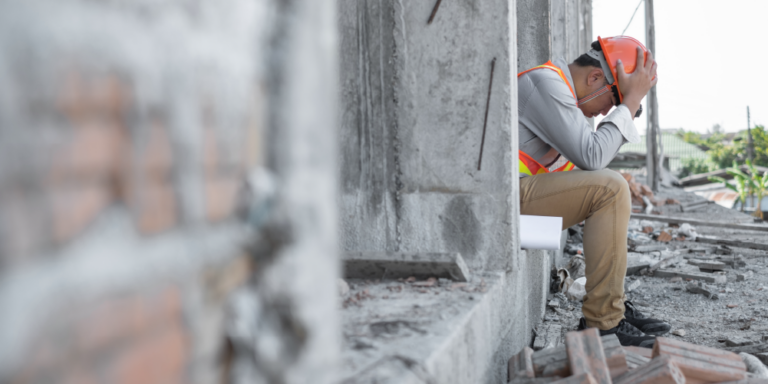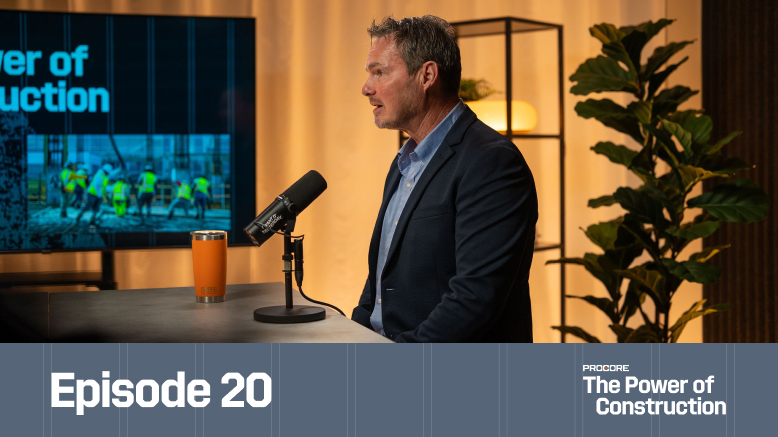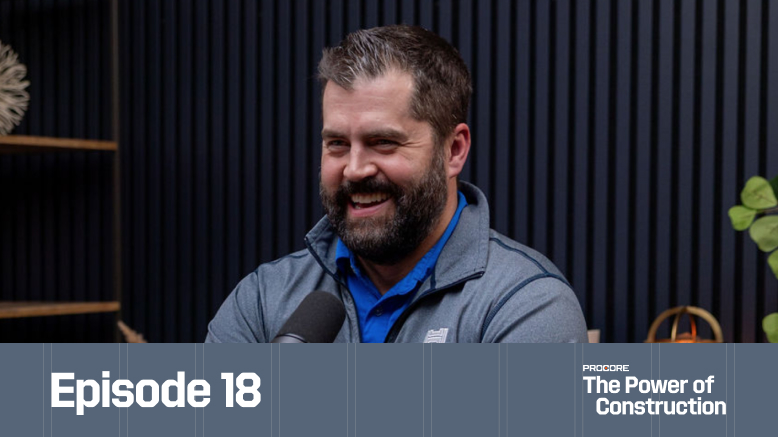— 7 min read
Improving Mental Health in Construction: Resources & Tools



Last Updated Sep 29, 2025

Elizabeth Rivelli
Contributing Writer
12 articles
Elizabeth Rivelli is a freelance writer specializing in insurance and finance. Her writing has been featured in dozens of publications, including Investopedia, The Balance, Forbes, Bankrate, NextAdvisor, and Insurance.com. Elizabeth holds a degree in Communication Studies from Northeastern University. She lives in New England.

Jacob Kunken
Solutions Engineer, Heavy Civil
28 articles
Jake Kunken currently works as Solutions Engineer for Procore's Heavy Civil division. He brings 14 years of experience working in various construction roles in New York and Colorado, including laborer, assistant carpenter, carpenter, assistant superintendent, superintendent, construction manager, safety manager, and project manager. Jake also spent time in EHS as an environmental engineer for Skanska. He’s worked on more than 40 commercial projects from ground-up, to heavy civil, hospital work, and tenant improvement. Jake studied Ecological Technology Design at the University of Maryland.

Kristen Frisa
Contributing Writer
113 articles
Kristen Frisa is a contributing writer for Procore. She also contributes to a variety of industry publications as a freelance writer focused on finance and construction technology. Kristen holds a Bachelor of Arts in Philosophy and History from Western University, with a post-graduate certificate in journalism from Sheridan College. She lives in Ontario, Canada.

Sarah Dean
Senior Content Editor
Sarah Dean is the Senior Content Editor for Procore Technologies and has been writing and editing in the construction space since 2020.
Last Updated Sep 29, 2025

Construction workers face a variety of threats on the job site. Physical hazards, like electrocution, falls and struck-by incidents are some of the most common accidents in construction. Additionally, many construction workers are at an increased risk of experiencing mental health disorders. According to a 2020 report from the Centers for Disease Control (CDC), the construction industry has the second-highest suicide rate out of all major industries in the U.S.
There are several reasons why construction workers are more likely to struggle with their mental health. Construction is a high-stress environment, driven by deadlines and long working hours. Many workers also deal with physical pain and fatigue that can lead to poor emotional well-being over time.
To create a safer work environment, construction companies need to bring awareness to these issues and provide the appropriate mental health resources for their employees.
Table of contents
Mental health in construction by the numbers
Data shows that mental health is a significant concern for workers in the construction industry. A 2020 survey of construction workers found that 14.3% of workers struggled with anxiety and nearly 6% struggled with depression, based on symptoms or medication use. Many workers also reported having worse mental health during the COVID-19 pandemic.
Construction laborers are also at a greater risk of suicide than other professions. According to the CDC, the rate of suicide among male construction workers is four times higher than the general population.
To cope with mental health disorders, some construction workers develop substance abuse problems. One study found that construction workers were significantly more likely to report marijuana, cocaine and non-prescription opioid use in the past month than other workers.
Impacts on mental health in the construction industry
There are a variety of reasons why mental health disorders are so prevalent in the construction industry. Here are some of the biggest factors that may contribute to disorders like depression, anxiety and substance abuse:
Physical Exhaustion
Construction is a labor-intensive job, and it can be physically demanding. When workers suffer from continual exhaustion, it can impact their emotional well-being.
Injuries
Construction workers are more prone to physical injuries than workers in many other occupations. These injuries can be serious and lead to chronic pain, which may affect mental health. If workers are prescribed medication for pain management, it may also increase the risk of substance abuse.
Long Working Hours
It’s common for construction workers to be on the job site for 10 to 12 hours per day, depending on the project. This leaves little time for other activities, like spending time with family, exercising and participating in hobbies.
Seasonal Layoffs
Because construction is seasonal in many areas, it’s common for construction workers to be out of work for a portion of the year. This can cause financial stress which may lead to poor mental health.
The business case for preventive mental health action
Investing in preventative mental health measures is not only beneficial for employees: It can also lead to significant improvements in business outcomes for construction companies.
The World Health Organization (WHO) estimates 12 billion working days are lost every year to depression and anxiety at a cost of US$ 1 trillion per year in lost productivity.
Employees who receive evidence-based supports are shown to be more present and productive — and the costs of supporting these workers may be offset by the improved quality of their work.
High turnover and absenteeism are costly for construction companies. Mental health issues contribute significantly to these challenges. Workplaces that promote good mental health and support individuals with mental illnesses are more likely to reduce absenteeism and prevent diminished productivity while at work. Fewer sick days mean projects can stay on schedule and within budget.
Preventative mental health strategies supports employees' well-being while driving better business outcomes through enhanced productivity, workforce stability and financial performance.
How to combat mental health challenges in construction
Mental health disorders, like depression and anxiety, are extremely common among the general population. However, construction workers are especially susceptible to these issues. There are many steps that construction leadership teams can take to reduce mental health distress among workers and laborers.
1. Know the warning signs.
Construction team leaders need to understand and recognize the warning signs of common mental health disorders. If you can identify these issues early on, it could prevent more serious problems from happening in the future. If someone on your team is exhibiting any of these symptoms, they could be struggling with their mental health:
- Decreased productivity
- Showing up late
- Increased conflict with other team members
- Isolation from coworkers
- Risky behaviors
- Difficulty concentrating
- Extreme mood swings
- Excessive use of drugs or alcohol
2. Utilize toolbox talks.
The Occupational Safety and Health Administration (OSHA) publishes monthly Toolbox Talks, which are free training guides that bring awareness to industry issues, like safety hazards and mental health.
Mental health-focused toolbox talks are designed to spark conversation among workers, so it’s important to encourage workers to ask questions and speak about their own experiences during these sessions.
3. Address the stigma.
In the construction industry, workers aren’t always encouraged to talk about mental health or speak out if they need help. With little opportunity for construction workers to discuss their physical and mental health struggles without facing harsh criticism, the stigma attached to vulnerability makes it tougher to have these discussions.
Company leaders and employees who foster judge-free environments will welcome openness from others. Building a positive company culture may encourage employees to disclose any mental health concerns they are dealing with, and receive help before injuries or other potential problems occur.
Additionally, construction company leaders should regularly receive and provide proper training to their staff on mental health.
For example, Procore offers a continuing education course called Health and Wellness of Your Team. The program provides education about the most common mental health issues that workers face, how to identify warning signs of mental health disorders and how to improve emotional well-being.
In a 2021 survey conducted by the Center for Workplace Mental Health, 77% of construction CEOs, presidents and owners said that addressing mental health at work was a priority. While this statistic is promising, construction industry leaders need to continue having conversations around mental health and make it a pillar of employee education to see lasting improvements.
4. Offer robust company benefits.
For construction workers, physical health is just as important as mental health. Your team members should have access to mental health benefits as part of their employee benefits package. This includes access to counseling services, employee assistance programs and a flexible time off policy if workers need to take a day for themselves.
Individual action plans
Regular mental health assessments can help identify employees who might need tailored support. Based on these check-ins, companies can develop personalized action plans, including access to counseling services, flexible working arrangements and personalized stress management techniques.
Mentorship and peer support
Establish mentorship programs where experienced employees can support their peers. Peer support networks encourage sharing experiences and coping strategies. Company-wide programs that include professional supports like legal assistance and financial advice may help address some of the stressors that can contribute to mental health issues.
Regular training sessions for all employees and managers raise awareness about mental health, reduce stigma and equip them with the skills to support colleagues effectively. Introducing wellness days or mental health days allow employees to take time off to focus on their mental well-being without using standard vacation or sick leave.
Quality of life balances
Strive toward providing flexible working hours and remote work where feasible. Improve the quality of life on site by providing gyms or relaxation rooms that encourage physical activity and stress relief during work hours.
Targeted strategies can help construction companies contribute to improved mental health outcomes for their workers. These initiatives boost individual well-being and promote a more productive, engaged and resilient workforce.
Mental health resources for construction workers
There are dozens of mental health resources available to construction workers. Company leaders should make sure that workers have access to these tools. They can also be used in mental health training and education meetings.
- Construction Working Minds: This website provides training on mental health and suicide prevention, as well as resources like workplace posters, employee quizzes, grief support and resources for employees experiencing a mental health crisis.
- Construction Industry Alliance for Suicide Prevention: The CIASP provides suicide-prevention resources to construction professionals. There are also a variety of free toolbox talks regarding suicide prevention, substance abuse and workplace safety.
- National Suicide Preventional Hotline: Anyone can receive free and confidential mental health support 24/7 in the U.S. by dialing 988. Counselors are available to chat online or via text. For immediate help, you can also dial 1-800-273-TALK (8255).
- Crisis Text Line: This free service is available 24/7 via text message if you need support for anxiety, depression, suicidal thoughts, or self-harm. You can text HOME to 741741 in the U.S. to speak to a trained crisis counselor.
this is part of the series
Construction Safety Basics
Was this article helpful?
Thank you for your submission.
95%
5%
You voted that this article was . Was this a mistake? If so, change your vote
Scroll less, learn more about construction.
Subscribe to The Blueprint, Procore’s construction newsletter, to get content from industry experts delivered straight to your inbox.
By clicking this button, you agree to our Privacy Notice and Terms of Service.
Thank you!
You’re signed up to receive The Blueprint newsletter from Procore. You can unsubscribe at any time.
Categories:
Written by

Elizabeth Rivelli
Contributing Writer
12 articles
Elizabeth Rivelli is a freelance writer specializing in insurance and finance. Her writing has been featured in dozens of publications, including Investopedia, The Balance, Forbes, Bankrate, NextAdvisor, and Insurance.com. Elizabeth holds a degree in Communication Studies from Northeastern University. She lives in New England.
View profile
Jacob Kunken
Solutions Engineer, Heavy Civil | Procore Technologies
28 articles
Jake Kunken currently works as Solutions Engineer for Procore's Heavy Civil division. He brings 14 years of experience working in various construction roles in New York and Colorado, including laborer, assistant carpenter, carpenter, assistant superintendent, superintendent, construction manager, safety manager, and project manager. Jake also spent time in EHS as an environmental engineer for Skanska. He’s worked on more than 40 commercial projects from ground-up, to heavy civil, hospital work, and tenant improvement. Jake studied Ecological Technology Design at the University of Maryland.
View profile
Kristen Frisa
Contributing Writer | Procore
113 articles
Kristen Frisa is a contributing writer for Procore. She also contributes to a variety of industry publications as a freelance writer focused on finance and construction technology. Kristen holds a Bachelor of Arts in Philosophy and History from Western University, with a post-graduate certificate in journalism from Sheridan College. She lives in Ontario, Canada.
View profileReviewed by

Sarah Dean
Senior Content Editor | Procore Technologies
Sarah Dean is the Senior Content Editor for Procore Technologies and has been writing and editing in the construction space since 2020.
View profileExplore more helpful resources

Why Don’t We Protect the Whole Person?
Behind every safety incident is a person — and behind that person is a story we rarely ask about. Were they already exhausted before they arrived on site? Did they...

What Drives Better Safety Outcomes—Carrot, Stick, or “Zero Harm”?
On paper, construction has never looked safer. In reality, mental health claims are rising, workers are disengaged and the compliance playbook is broken. Garry Mansfield, co-founder of Scratchie, argues the...

How Close Are We to Bridging the Design-Build Divide?
For decades, construction decisions have often been made based on gut instinct. But what if the real barrier to transformation isn’t technology—it’s the divide between design and construction? In episode...

Gain Without Pain: Leveraging Technology for Strategic Safety Programs
In safety, there is always room for improvement, and technology creates the ability to scale safety programs that drive risk mitigation, operational efficiencies and competitive advantage. In fact, builders who...
Free Tools
Calculators
Use our calculators to estimate the cost of construction materials for your next project.
Templates
Find a template to help you with your construction project tasks.
Material Price Tracker
Get the latest U.S. retail prices and view historical trends for common building materials.
Glossary
Explore key terms and phrases used in the industry.
